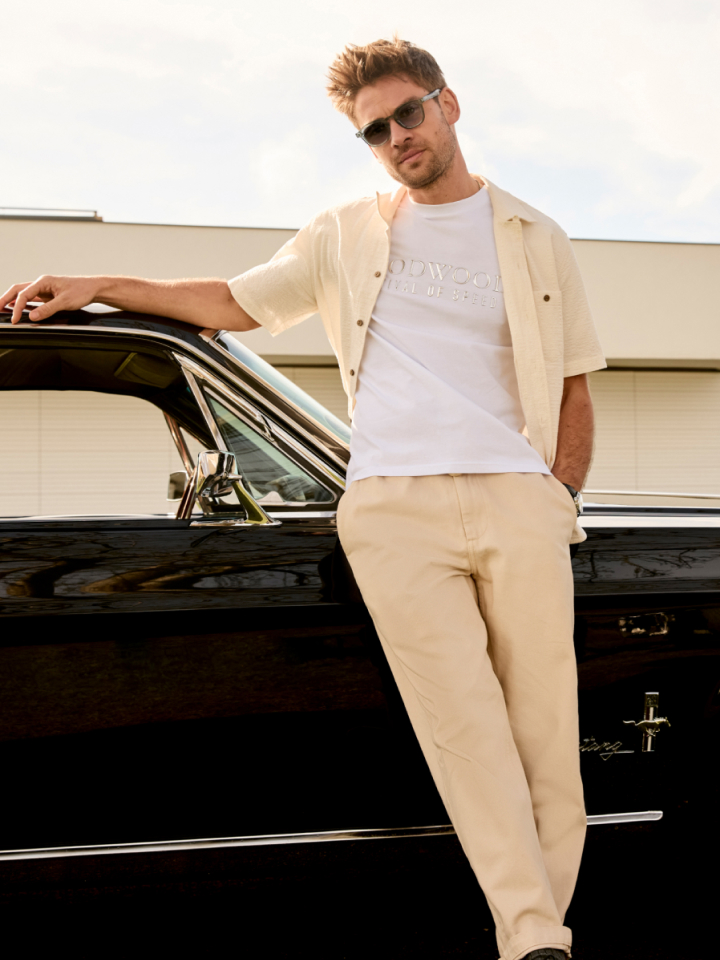Jaguar D-Type 1957, part 1: The road to Le Mans domination
Fifth or sixth was the realistic aim of this ambitious but experienced team owner. And that would have been impressive enough given that his small outfit was based in lock-ups tucked down a cobbled mews in genteel Edinburgh. Instead, Francophile wine merchant/publican David Murray’s Ecurie Ecosse won the Le Mans 24 Hours at its first attempt – and saved Jaguar’s face as it did so.

The 1956 iteration of this famous race had, in truth, been emasculated by new regulations – fewer bhp, more mpg – introduced in response to its horror crash of 1955. Even so, Jaguar’s works cars failed spectacularly to live up to their pre-race billing, all three fuel-injected long-nose D-Types being ruled out of contention for victory within four laps.
Thus it was left to Ecosse’s year-old D and unheralded drivers to take the fight to a works Aston Martin commanded by proven Grand Prix winners. Driving to a precise schedule and backed by excellent pit work, saintly Ron Flockhart from Edinburgh and earthy Ninian Sanderson – purveyor of young Jackie Stewart’s first moped – from Glasgow matched the starred combination of Stirling Moss and Peter Collins and moved ahead by a lap when the latter’s DB3S lost second gear early in the morning. It was an advantage that the Scots held to the finish.
Though it had been no fluke, few expected a repeat in blockbuster 1957. For, keen to regain world championship status, Le Mans had kowtowed to the governing body and allowed the return of powerful prototypes – rather than limit them to 2.5 litres. That the nickname for Maserati’s 450S was ‘The Bazooka’ was indicative of its methodology, performance and impact. That Ferrari’s 4.1-litre V12 was a match for its 4.5-litre V8 Modenese rival emphasised what was to come.
Jaguar’s D-Type, one of the few production cars entered, was a rapier in comparison, its aerospace underpinnings and clothing compensating for an engine and gearbox little changed since the marque’s 1950 Le Mans appearance. Its slippery shape and disc brakes – the latter for their longevity as much as their power – were boons in a long race on a circuit consisting of long straights and big stops. Even so, the Coventry firm was content to cede to its privateers.

Ecosse bought two of the 1956 works cars: XKD606, which had been crashed in practice by Ulsterman Desmond Titterington, and XKD603, an amalgam of the cars damaged in the calamitous second lap shunt: Paul Frère spun and crashed at The Esses and team-mate Jack Fairman had spun in avoidance and been collected by the Marquis de Portago’s Ferrari. Now prepared under the vastly experienced auspices of renowned tuner and co-director ‘Wilkie’ Wilkinson, a Londoner, XKD606 now benefited from the latest big-bore 3.8-litre version of the renowned XK straight-six and used low-pressure Lucas fuel injection, while XKD603 featured a 3.4 breathing through Weber carbs. Loaded onto a pair of converted 1929 single-decker buses, this well-drilled team began its long journey south.
Its intrepid crew consisted of mechanics Stan Sproat and Pat Meehan, both Scottish, plus Australian Ron Gaudion, who had joined from Jaguar. They were to be assisted by Sandy Arthur when his transport duties – those buses were not the most reliable – allowed. Timekeeping was to be the domain of Bob Gibson-Jarvie of the UDT finance firm and Hugh Langrishe, Flockhart’s partner in a BP filling station/garage in Ascot; the lap charts were the responsibility of Murray’s wife Jenny and friend Kay Bryant. Meehan and Arthur were to be based at the Mulsanne Corner signalling station, leaving Wilkinson, on the fuel hose, and Sproat and Gaudion to man the pits.
On the driver front, Flockhart and Sanderson had been split up, the former now co-driven in the flagship car by London-born Cheltenham garage owner Ivor Bueb, a winner for Jaguar as a late replacement in 1955 and blessed with the knack of going fast at night, while the latter was team with Banffshire rookie John ‘Jock’ Lawrence.

Much of practice was spent rehearsing and analysing pit stops, fine-tuning the fuel injection – ‘Wilkie’ was still running it up the road on the morning of the race – and keeping out of harm’s way as Ferrari and Maserati butted heads. There was no point trying to match the red cars, particularly as multiple world champion Juan Fangio, fastest in practice, was unlikely to contest a race that he had come to detest, while Maserati team-mate Stirling Moss, no fan of this French enduro either, was aghast at his new, supposedly tailor-made 450S Coupé. There had been talk that the latter, based on drawings by Frank Costin, the aerodynamicist responsible for the distinctive Formula 1 Vanwall, would be capable of 200mph, but the reality was that its build had been rushed, corners cut, and that it was slower than its open-topped cousin. Ferrari, meanwhile, was fretting over problematic new pistons and was busy fitting older versions into a cylinder bank of the car to be shared by Collins and America’s Phil Hill.
Despite being warned to run-in these items, the former set a new standing lap record – and retired steamily on the second lap; Enzo reportedly was not best pleased with his former favourite. Mike Hawthorn, who had given Moss a shock by breezing gleefully by the low-slung Maserati, now took the lead for Ferrari and pulled away relentlessly.
Meanwhile, sitting contentedly on the fringes of this madness, was a Flag Metallic Blue Jaguar, with its Saltire and identifying Lance-corporal stripe: ‘Ivor the Driver’ was playing it cool. And further back in the pack were four other privateer Ds, each awaiting their moment…
Photography courtesy of LAT Images
Jaguar
D-Type
Le Mans































































